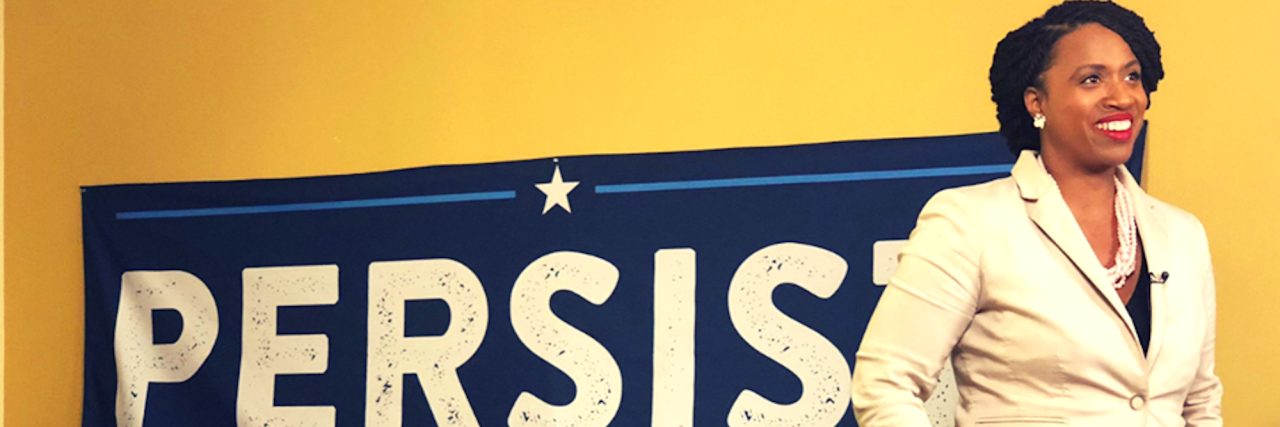Rep. Ayanna Pressley Nails Why We Shouldn’t Call People ‘Junkies’
On Thursday, Rep. Ayanna Pressley (D-Mass.) took to Twitter to clear up a misconception that was tweeted at her — that her father was a “junkie.”
These responses presumably came in the wake of Pressley addressing her father’s prison time and substance abuse disorder during a House Oversight Committee meeting. See the video here.
In response to a now-deleted tweet, Pressley wrote:
So, here’s what we are not gonna do. My father was no “junkie”. Nothing junk like about him or anyone else battling addiction. He was (& remains) a brilliant man who experienced great trauma in his life & self medicated, just like millions of Americans do daily. It is an illness.
So, here's what we are not gonna do. My father was no "junkie". Nothing junk like about him or anyone else battling addiction. He was (& remains) a brilliant man who experienced great trauma in his life & self medicated, just like millions of Americans do daily. It is an illness. https://t.co/c7KpPyDmFS
— Ayanna Pressley (@AyannaPressley) March 15, 2019
The overlap between trauma and substance abuse is well-documented. This link is particularly common for adolescents who have experienced trauma.
In one study, researchers found that up to 59 percent of young people with PTSD subsequently develop substance abuse problems. In the well-known CDC-Kaiser Adverse Childhood Experiences (ACE) study, researchers found that people who score highly on the ACE scale (that measures adverse experiences before age 18) are at a higher risk for alcohol addiction, illicit drug use and depression — to name a few.
This isn’t the first time people have resorted to using the hurtful word “junkie” to describe someone struggling with addiction. When singer Demi Lovato overdosed last July, a plethora of insensitive memes surfaced, calling her a junkie and implying it was her “choice” to become addicted.
This is a common misconception Mighty contributor Healing + Patience addressed at the time it happened. They wrote:
The biggest misconception I’ve seen repeated all day is that Demi chose this struggle with addiction. The thing is though, it never has and never will work that way. We’re talking about mood-altering substances that seem like a good coping mechanism in the moment, but ultimately manipulate one’s ability to cope and function at all. Sobriety is not an act of willpower. Sobriety is very much dependent on the person’s will to get help, but even beyond that, their brain and body’s ability to find reasons (that they can buy into) to stop using and find healthy coping mechanisms to replace the destructive ones.
Access to care is also a huge barrier for folks of lower economic status struggling with addiction. According to American Addiction Centers, in 2016, only 18 percent of people who needed treatment were able to access it.
If you or someone you know is in crisis or is struggling with addiction, you can call SAMHSA’s hotline at 1-800-662-4357.
Header image via Ayanna Pressley Facebook page

